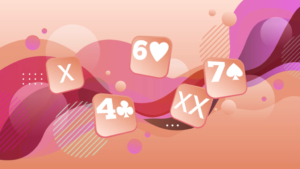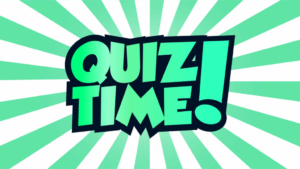
September Bidding Contest: the results !

Summary
The experts’ answers
Deal 1: Tactical choice
Deal 2: White lie
Deal 3: To which level?
Deal 4: A costly reverse!
Deal 5: The same old story
Deal 6: A small revision
Winners
Share your view!
The experts’ answers

Deal 1: Tactical choice

Aside from Chidiac, who took the bull by the horns: “4♠. In theory, showing a big hand with Hearts and a minor, a powerful 5-5 or 6-5 two-suiter, rarely 6-6 but not 6-4. However, with this really nice hand, South should take the risk”, the other experts were divided between Double and 4♥.
Let us examine the arguments of the minority who preferred 4♥: Hackett: “4♥. I expect they’ll say 4♠. I will then be able to double to show a strong 4♥ bid. I prefer this way of going about it rather than doubling first and saying 5♥ later.”
Rocafort: “4♥. A bit simplistic but the risk of ending up in 3 Spades doubled, which would prove to be inadequate, seems to me to be higher than that of missing a slam, even provided that we would be able to get there by starting with a double.”
T. Bessis: “4♥. In a competitive situation, the higher the level, the higher the risk of Partner converting a take-out double with weaker and weaker stops in the opponents’ suit. There is therefore no chance of me doubling with this hand and only two options remain to me: overcalling with 4♥, a bit timid, or 4NT, a priori a minor two-suiter but that I could follow up with 5♥ to show a powerful single-suiter… I prefer to settle for an initial 4♥, for a tactical reason. In view of my spade void and the vulnerability, the opponents will very certainly bid 4♠ and I will then be able to balance with 4NT to show the three-suited nature of my hand. I might be keen to take things to the 5-level.”
Kerlero: “4♥. I know, I have too much… But I anticipate that West will say 4♠ at least nine times out of ten. If my partner doubles, my problem will be showing my desire for grand. If not, I will double, myself, to show the spade shortage and some extras. Doubling first seems better a priori with this monster but what will I do if it comes back to me, as is extremely likely, with 4♠-pass-pass? I have no desire at all to go down in 5 Hearts when they might be going for 500 in 4 Spades.”
And what about the fans of Double?
Pacault: “Double. I am not afraid of playing in 3 Spades doubled, as that contract will definitely go down and I am not even sure to make 4 Hearts. One possible hand for North: ♠AQ93 ♥5 ♦8653 ♣8642. For another thing, doubling gives the advantage of showing a strong hand when the hearts are bid (if North does not pass).”
Kokish: “Double. I am taking the risk of Partner passing so that I show both my strength and support for all the suits. If North says 5♣ or 5♦ over the opponents’ 4♠, we might reach a minor-suit slam that we would have skewered by overcalling with 4♥.”
Lévy: “Double. I am expecting a 4♠ bid from West. The sequence of Double followed by 5♥ is clearer, even if more one-sided, than 4♥ followed by Double over 4♠. The strength of my hand means I can hope to not be in danger at the 5-level or to declare 6♥ if that suits.”
Toffier: “Double. Far too good a hand to settle for a simple 4♥ overcall (we are making slam with nothing opposite: ♠642 ♥642 ♦A643 ♣Q64 and plenty of other hands besides). I will therefore show the hearts on the following round, unless North converts the double.”
Kerlero’s prudence was a good idea on this deal, where Partner held ♠J7532 ♥A63 ♦105 ♣1084. Enough to make 4 Hearts but not 5 or to cash in 300 in 4 Spades doubled.
Remember:
There is no ultimate truth on these types of deal. Both bids have their advantages and disadvantages, clarified above. You need to be inspired…
Score for deal 1
Double: 100 (9 votes)
4♥: 50 (4 votes)
4♠: 20 (2 votes)
Deal 2: White lie

Unanimous answers: here we have a pretty rare phenomenon! No one was concerned about bidding 3♦. Never mind that you do not have real three-card support: Ace-doubleton is better than nothing. Above all, as our experts are about to explain, what else can you say?
T. Bessis: “3♦. It is on the following round that there is a risk of things getting complicated… Maybe 4NT to show a strong 5-4-2-2, definitely with a big diamond honour and undoubtedly a poor club stop too?”
Saporta: “3♦. The other option (4NT) is rather lacking in flexibility.”
Hackett: “3♦. The other possibility is a quantitative 4NT but I don’t even have a club stop!”
Rocafort: “3♦. Let’s keep playing hide-and-seek, hoping that the light comes on later (but if North continues with 3♠…). The less-than-exciting alternative would be 4NT but it would correspond better to a hand with the Ace of Diamonds moved to Clubs.”
Quantin: ”3♦. For lack of a better option. It would be ideal to hold three cards in Diamonds for this bid. With 18 points, and therefore the strong possibility of a slam being bid, it suits us to take our time. But above all, what else?”
Kokish: “3♦. Bidding 3♦ will make our job of finding a 5-2 spade fit easier when 4 Spades is the best game and does not compromise our chances of reaching a slam or another better game. 3♦ does not guarantee three cards.”
Remember:
When you know that the sequence is not going to end, favour a flexible bid, even if it does not exactly correspond to your hand, over a more descriptive bid that eats up space.
Score of deal 2
3♦: 100 (15 votes)
Deal 3: To which level?

La suite est réservée aux abonnés Funbridge Premium et Premium+
Pour lire la suite de l'article, vous devez être abonné à l'offre Premium ou Premium+.




How can I see my result and suggestions on an iPad?